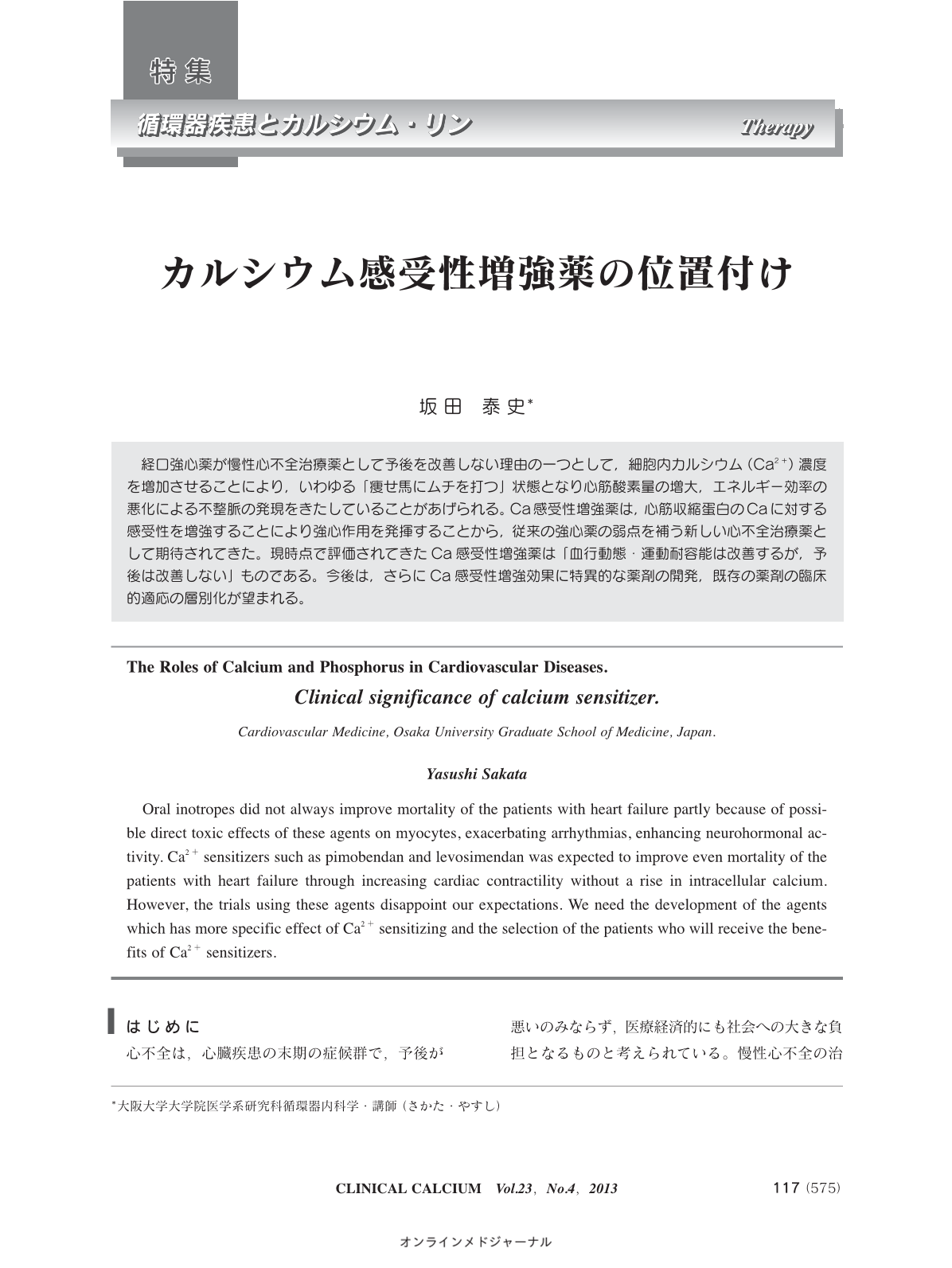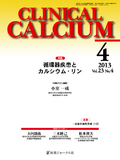Japanese
English
- 有料閲覧
- Abstract 文献概要
- 1ページ目 Look Inside
- 参考文献 Reference
経口強心薬が慢性心不全治療薬として予後を改善しない理由の一つとして,細胞内カルシウム(Ca2+)濃度を増加させることにより,いわゆる「痩せ馬にムチを打つ」状態となり心筋酸素量の増大,エネルギー効率の悪化による不整脈の発現をきたしていることがあげられる。Ca感受性増強薬は,心筋収縮蛋白のCaに対する感受性を増強することにより強心作用を発揮することから,従来の強心薬の弱点を補う新しい心不全治療薬として期待されてきた。現時点で評価されてきたCa感受性増強薬は「血行動態・運動耐容能は改善するが,予後は改善しない」ものである。今後は,さらにCa感受性増強効果に特異的な薬剤の開発,既存の薬剤の臨床的適応の層別化が望まれる。
Oral inotropes did not always improve mortality of the patients with heart failure partly because of possible direct toxic effects of these agents on myocytes, exacerbating arrhythmias, enhancing neurohormonal activity. Ca2+ sensitizers such as pimobendan and levosimendan was expected to improve even mortality of the patients with heart failure through increasing cardiac contractility without a rise in intracellular calcium. However, the trials using these agents disappoint our expectations. We need the development of the agents which has more specific effect of Ca2+ sensitizing and the selection of the patients who will receive the benefits of Ca2+ sensitizers.



